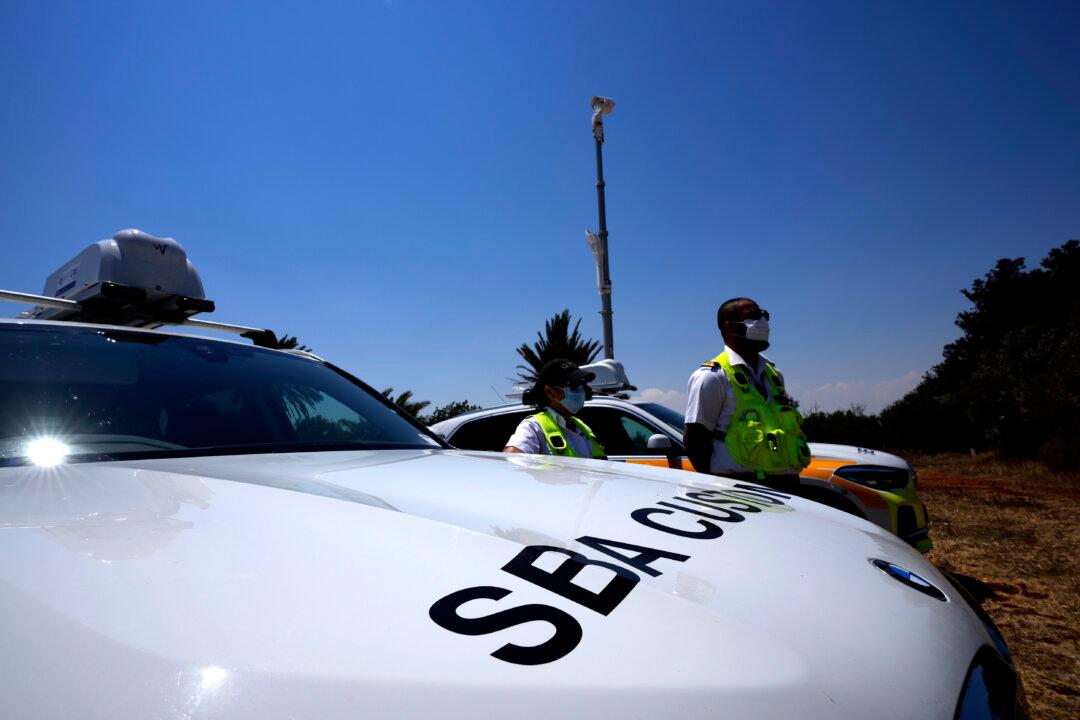PERGAMOS, Cyprus—Authorities at a British military base on Cyprus have hired 50 percent more customs officers and procured detection equipment to better thwart illegal immigration from the breakaway north of the ethnically split island.
The addition of 24 new officers and four SUVs—two with thermal imaging cameras—allows authorities to patrol around-the-clock along a 45-kilometer (28-mile) boundary, Customs and Immigration Chief Adam Chatfield said.





